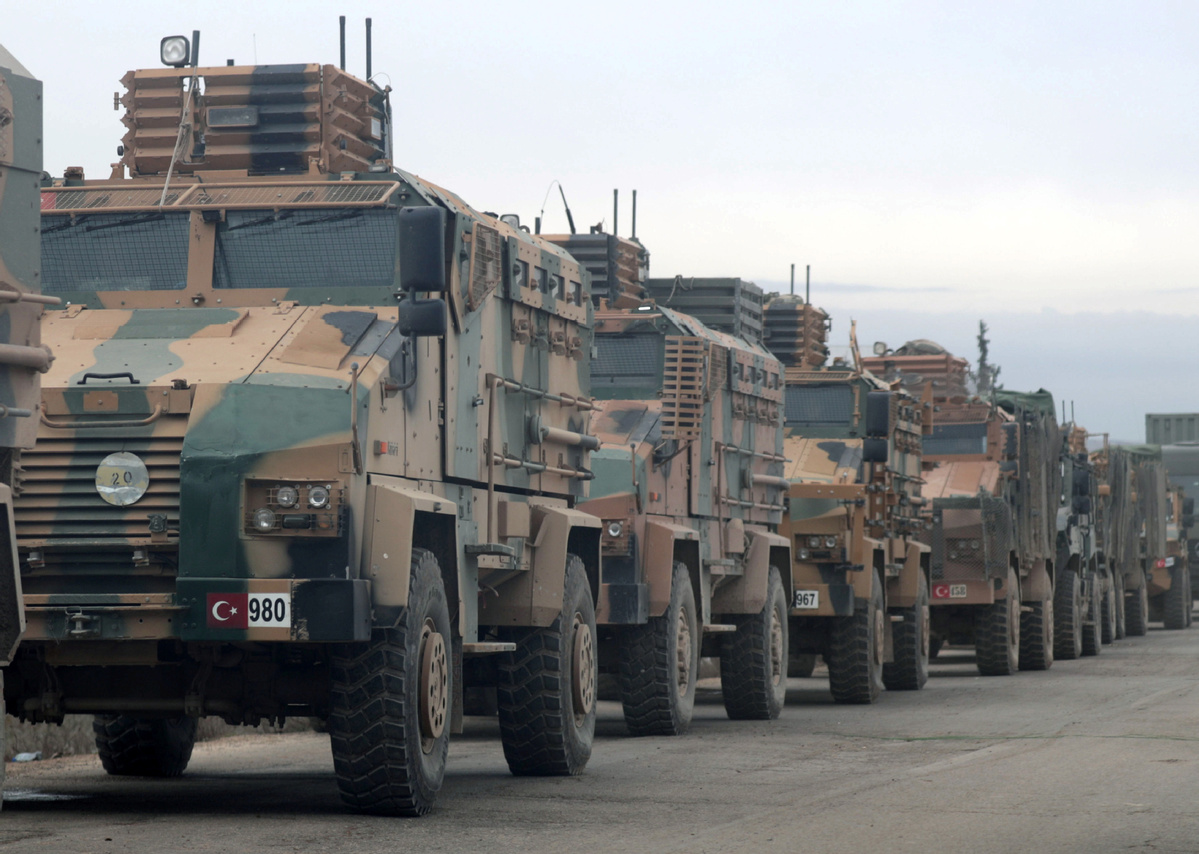Conflicts in Syria's Idlib draw US, Turkey closer
Xinhua | Updated: 2020-02-20 10:09

ANKARA -- Deadly Russian-backed Syrian government attacks on Turkish forces in rebel-held stronghold of Idlib in Syria have triggered a cautious rapprochement between quarreling NATO allies Turkey and the United States.
US officials were swift to address messages of support and solidarity to Ankara which has lost 13 servicemen in two attacks in the northwestern province of the war-torn country since the beginning of the month.
Following the Syrian attacks, Turkey has sent thousands of troops, tanks and armored vehicles in Idlib to reinforce its observations posts which were established in accordance with a 2018 de-escalation zone agreement with Russia, while tensions remain high on the ground.
On Wednesday, Turkish President Recep Tayyip Erdogan warned that it is "only a matter of time" before it launches an operation to stop the Syrian offensive on Idlib that has killed scores of civilians since last December.
US Secretary of State Mike Pompeo shared a message on Twitter last week, expressing condolences over the loss of Turkish soldiers and dispatched US Special Envoy for Syria James Jeffrey to the Turkish capital for talks.
Jeffrey offered strong messages of support and sympathy in front of journalists.
The deterioration in Turkey's ties with the US and other Western allies over the recent years has resulted in further convergence between Ankara and Moscow.
The Brunson crisis, a US pastor released from jail following intense US pressure which ultimately caused a currency meltdown in Turkey, US sanctions over Turkey's purchase of Russian S-400 missiles, and continuous US support to Syrian Kurds, have seriously disrupted ties between the two NATO allies.
This environment has led to a deep mistrust in the Turkish public opinion, boosting anti-American sentiment across the country.
Observers have speculated that the US administration is now sensing an opportunity to rebuild the relationship with Ankara after years of disagreement over Turkey's evolving relationship with Russia.
Recently, US President Donald Trump spoke on the phone with his Turkish counterpart and thanked him for his efforts in preventing a "humanitarian catastrophe" in Idlib, the White House said.
Over the years, analysts have pointed out that by engaged in a close relationship with Turkey, Russian President Vladimir Putin has been seeking a strategic objective to undermine Erdogan's relationship with NATO.
However, nearly 60 percent of Turks think that their country should definitely remain in the alliance, according to a survey conducted by the Istanbul Kadir Has University published on Tuesday.
"For many, the ongoing tension between Turkey and Russia over Idlib would pave the way for a normalized relationship between Turkey and the US," political analyst and journalist Serkan Demirtas told Xinhua.
"Some think that it would be time for Turkey to re-calibrate its foreign policy in a way to turn its face to the West by ending its cooperation with Russia," he pointed out.
Erdogan's growing discontent with Putin in Syria resulted in calls by some government aligned experts and columnists for more engagement with NATO and the European Union.
Another reason for Turkey to remain its military presence in northwestern Syria is to prevent a dreaded refugee exodus towards its borders.
Over 800,000 displaced civilians from Idlib fleeing shelling and air raids have settled near the Turkish border, international monitors said.
Idlib is the last stronghold of the Syrian rebels and extremists who have been trying to overthrow Syrian President Bashar al-Assad since 2011.
Meanwhile, Turkish-Russian talks in Moscow during this week have been inconclusive, raising the risk of further tensions between the two nations.
However, some analysts argued that after years of bitter differences with Washington, Ankara is not ready yet to soften its stand with its ally.
"Ankara welcomes support from the US, but it will not lead to a drastic change in its foreign policy, at least for now. Instead, it will try to capitalize on the latest US engagement in its efforts for more balanced diplomacy between Russia and its Western allies," Demirtas said.
"Turkey only acts according to its national interests and we have been wrongfully and unjustly accused of shifting from the West, but recent developments have shown that Turkey is engaged in a balanced foreign diplomacy," a Turkish diplomatic source told Xinhua on condition of anonymity.
























